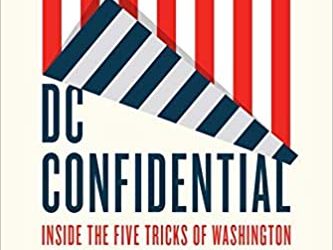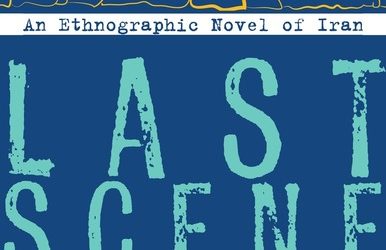My Pandemic Hack for Classes
Shelley Wear, a long-time volunteer on our Dyslexic Advantage editorial team shared these pandemic hacks for her classroom. Thanks Shelley! "The struggle is real to make sure students understand what you are saying with a mask on. I purchased a personal amplifier...
David Schoenbrod: Problem Solver and Changemaker
"The fundamental wiring of the brain that causes dyslexia also enhances our ability to see the big picture..." - Attorney, Author, and Professor David Schoenbrod David Schoenbrod is a big picture changemaker. In fact, in his impactful life, he's been able to...
Johnpaul Jones: Native American Architect [Premium]
“Where Native people come from, everything’s not in straight lines.” – Johnpaul Jones Johnpaul Jones is one of the world’s leading architectural architects and landscape designers, and he is also dyslexic. He was the lead design consultant for the National Museum of the American Indian, the Bainbridge Island Japanese American Exclusion Memorial, The Southern Ute Cultural Center and Museum, Vancouver Land Bridge, Mountains to Sound Greenway Plan, Oregon Zoo Educational Center, Longhouse Educational and Cultural Center, and Gorilla Conservation Research Center, among many, many others. He has said that his aesthetic was inspired by his Choctaw – Cherokee mother’s four world perspective: natural animal, spiritual, and human. Johnpaul describes his early life as being a “bad boy” and “dyslexic.” He struggled in school, and […]
Foreign Language Learning [Premium]
Q: HOW CAN I IMPROVE MY FLUENCY WITH A SECOND LANGUAGE? Recently, a member of this community asked about how to improve his fluency with a foreign language. He mentioned that he’d been trying to learn for the past 30 years, but only recently started making more progress with the app Yabla because it was visual and didn’t rely on audio alone. Yabla is an interactive video approach to foreign language learning that provides two channels of captions that can be shown or hidden and TV shows, music videos, documentaries, and interviews. A: I can see how Yabla can help with improving speed of listening. The videos provide context and the scenes may make the dialogues more memorable than if they were read […]
Singer Tony Bennett’s Last Concert
"To me, life is a gift, and it's a blessing to just be alive. And each person should learn what a gift it is to be alive no matter how tough things get." — Tony Bennett Tony Bennett really sounds great at 95 years old. Check out his duets with Lady Gaga below....
Dr Roxanne Varzi: Creative Anthropologist
I recently had the chance to talk to Dr Roxanne Varzi, a writer, anthropologist, and filmmaker who was also the first Fulbright Awardee since the Islamic Revolution for research in Iran. She's doing such interesting work that is creative on many levels that I...
How to Keep Writing During the Pandemic [Premium]
Despite all of the mechanical and logistical challenges of writing for dyslexics, there are many for whom writing is a strength. What makes good writing? So many things, but keen powers of observation, a good sense of humor, insight, feeling, these are all things that make good stories and storytelling. For some kids and adults, keeping a pandemic journal is therapeutic. It’s not limited to text. COVID comics anyone? Historians or watchers of Antiques Roadshow may recall how interesting pandemic or war time journals of the past were to transporting them into all the places and times of crises. Smithsonian has a post about the 1918 influenza diaries for those who might want to get some historical context on our present. Some people […]
Daydreaming While Reading [Premium]
“There are certain half-dreaming moods of mind in which we naturally steal away from noise and glare, and seek some quiet haunt where we may indulge our reveries and build our air castles undisturbed.” – Washington Irving Daydreaming holds a curious position in the areas of science. On the one hand, daydreaming has been seen as a negative, associated with inattention and poor task persistence, but on the other, associated with creative behavior and personal inspiration. Neuroscientists have taken a renewed interest in daydreaming because daydream pathways activate the default mode network, a brain network that is now known to be important for reflecting on one’s self as well as others, remembering the past, and imagining the future. Studies of dyslexic and non-dyslexic people […]
Interconnected Multisensory Learning [Premium]
“My mind isn’t a train track. It’s like a web browser with lots of hyperlinks…” – Honors College Student with Dyslexia What is interconnected multisensory learning? INTERCONNECTED MULTISENSORY LEARNING Part of the educational challenges of growing up with dyslexia is learning how to harness the tremendous power that comes with interconnected and multisensory learning. On the advantage side, dyslexic learners are rich experiential and incidental learners. Remember that research study from Sweden and Georgetown University? “The Developmental Dyslexia group was not only not impaired at the task, but actually showed superior recognition memory (emphasis, ours), as compared to the control children. These findings complement previous reports of enhanced cognition in other domains (e.g., visuo-spatial processing) in DD. Possible underlying mechanisms for the observed […]
Preparing with Templates and Posters [Premium]
When interviewing accomplished people of all sorts who are also dyslexic, there are some recurring themes – and one is, “I learned how to do the ‘dyslexic thing,’ you know, overprepare.” In some cases that means committing more hours to something – whether it was oral presentation or final project or job rotation. But often, it’s not just extra time spent; it’s also learning how to streamline certain repetitive features along the lines of “plan better” and not just “work more.” I was recently reminded of this when a social worker posted her work hacks for school and for work. One example is creating a template for her case notes: The template streamlines repetitive information that needs to be covered and reduces […]
Sports and Getting Outdoors [Premium]
“He started swimming lessons when he was 3,” Terri says. “At the pool, his skills just grew and grew. By middle school he was one of the most valuable members of the swim team and the other kids looked up to him. Now in high school, Shawn still has to work hard at reading and writing, though he gets some extra help in these areas. His mom, who supports his progress in both academics and athletics, says that swimming gives him an outlet for school-related stress, and an identity he can be proud of…” – from Sports: Strengthening Self Confidence and School Skills, Yale Center Creativity & Dyslexia For many, sports and outdoor recreation our powerful outlets sources of enjoyment, positive self-esteem, confidence, and […]




![Johnpaul Jones: Native American Architect [Premium]](https://www.dyslexicadvantage.org/wp-content/uploads/2021/10/Johnpaul-Jones-Native-American-Architect-400x250.png)
![Foreign Language Learning [Premium]](https://www.dyslexicadvantage.org/wp-content/uploads/2021/10/Foreign-Languages-400x250.png)


![How to Keep Writing During the Pandemic [Premium]](https://www.dyslexicadvantage.org/wp-content/uploads/2021/09/keep-writing-400x250.jpg)
![Daydreaming While Reading [Premium]](https://www.dyslexicadvantage.org/wp-content/uploads/2021/08/daydream-400x250.jpg)
![Interconnected Multisensory Learning [Premium]](https://www.dyslexicadvantage.org/wp-content/uploads/2021/08/Interconnected-2-400x250.jpg)
![Preparing with Templates and Posters [Premium]](https://www.dyslexicadvantage.org/wp-content/uploads/2021/08/Templates-2-400x250.jpg)
![Sports and Getting Outdoors [Premium]](https://www.dyslexicadvantage.org/wp-content/uploads/2021/08/Sports-2-400x250.jpg)













